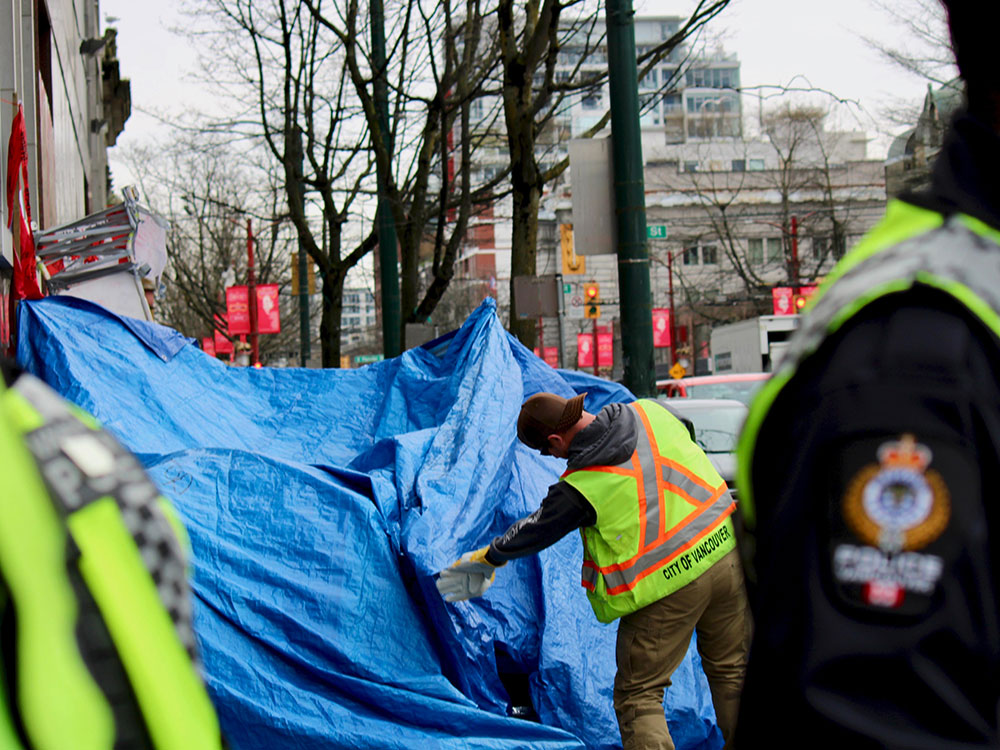Newfoundland and Labrador recently announced plans to introduce a basic income for people aged 60 to 64 receiving social assistance. It is slated to roll out in April 2024 and will match existing federal seniors’ benefits.
On Prince Edward Island, a recent report has outlined how the province could reduce poverty by adopting a basic income. Meanwhile in Ottawa, the Senate is considering developing a framework for a national basic income. Momentum behind a basic income is clearly growing in Canada.
Still, some remain skeptical and reservations about basic income often come down to ideas about who truly deserves assistance.
Treating poverty as an individual problem
There are largely three explanations for poverty. First, the “individual explanation” points to personal failings or inadequacies (like laziness or lack of discipline) as key contributors.
Second, the “structural or systemic explanation” considers the societal barriers that cause poverty: the lack of quality jobs, inequality, climate disruptions and economic and health crises, among other issues.
Third, the “fatalistic explanation” suggests that how people fare in life really chalks up to fate (hence the “less fortunate” label). Bad luck causes unfortunate events, like illness or loss, that trigger poverty.
Of these, the second has the greatest weight — the causes of poverty are systemic.
How did we learn to believe poverty was a personal responsibility?
Canada’s social welfare architecture is modelled after the British and built on 16th-century Poor Law ideas. This legacy taught us to believe that poverty is a personal responsibility, with the onus on individuals to lift themselves out of it through discipline and hard work.
Public assistance was purposefully designed to be punitive and stigmatizing so that people avoided it at all costs.
The poor were divided into two camps: the “deserving poor” (the infirm, elderly or disabled) were provided assistance at home, whereas the “able-bodied” undeserving poor were provided food and lodging in exchange for work in gruelling workhouses, supposedly meant to instil a work ethic.
Following two world wars and a depression, though, society began to appreciate that people could become “poor” through no fault of their own and that an active government response was needed to foster a healthy and prosperous society.
In the 1950s to 1970s, Canada introduced various income security programs.
By the ’70s and ’80s, however, some became worried about too much government spending and we reverted to the old ways of thinking about poverty.
Poverty myths
My research focuses on understanding the causes of poverty and debunking myths about why people become and remain “poor.”
New ideas don’t always “sweep away the old” and myths about poverty linger, such as:
Myth 1: Poverty stems from individual problems
Reality: Systemic barriers carry more weight in engendering poverty than individual factors.
The cost of living crisis in Canada is being driven by inadequate income support programs, unaffordable housing and the lack of quality employment.
Myth 2: Poor people are lazy and unmotivated and need incentives to work
Reality: People in poverty are working hard (often in multiple jobs) but aren’t getting any further ahead.
It’s a matter not of inadequate motivation, but of a fundamental lack of gainful work opportunities — jobs that pay wages people can live on and possibly raise families on.
Myth 3: Poor people are all mentally ill and drug-addicted
Reality: Addictions are not “the sole property of the poor”; rather they traverse all socio-economic levels.
Poverty does create immense worries for those subjected to it, but research shows mental health and substance use issues improve through interventions, like basic income, that alleviate poverty.
Poor environments (often featuring trauma and childhood adversity) generate mental illness and addictions; enriching environments diminish them.
Myth 4: Poor people are criminals and prone to violence
Reality: Criminal behaviour and violence are not confined to people within a specific category or class, although the consequences of criminal behaviour can often differ. Wealthy people can afford high-powered lawyers who help them avoid prosecution and punishment. White-collar crime often receives little to no punishment.
Meanwhile, low-income neighbourhoods are regularly subjected to surveillance and heightened police presence.
And racism (both systemic and overt) has led to the overrepresentation of marginalized people in the criminal justice system.
Myth 5: Poor people have different morals and values; they’re different from me
Reality: Assumptions of dubious morality again play into narratives of poverty being about individual problems and exonerate the economic and political structures that reproduce poverty.
Almost everyone (even the richest among us) affiliates with the “middle class” and its ideals.
Differences among people have much more to do with access to power and resources, not morals and values.
Myth 6: Poor people just need to be more resilient
Reality: Focusing on individual resilience suggests it is people who must be the ones to adapt and change, not the conditions they’re exposed to.
Supportive environments that provide access to resources and opportunities are more likely to produce resilient populations.
Myth 7: Ending poverty isn’t affordable, and people can rely on charity
Reality: The system we’ve opted for now is hugely expensive.
We pay dearly to address poverty’s symptoms, not its causes, and do so ineffectively.
Cash transfers to individuals have great health and social benefits that can reduce the exorbitant costs of poverty.
And charity just won’t cut it — people never get out of poverty by using charitable programs and there is a loss of dignity for those who use them.
These myths are incredibly damaging and hinder us from advancing policy solutions proven to work.
Cash transfer programs, like basic income, have a solid evidence base, showing they’re effective.
People don’t suddenly drop out of the workforce when they receive a basic income, nor are such programs too expensive to implement.
We should be taxing super-rich corporations and individuals more to curb income inequality, known to be deadly for society.
Let’s discard outdated thinking. Like Newfoundland and Labrador, the rest of Canada needs a basic income to help people cope with the cost of living crisis.
Unlike misleading myths, the anguish of poverty is real.![]()
![]()
Read more: Rights + Justice, Politics

















Tyee Commenting Guidelines
Comments that violate guidelines risk being deleted, and violations may result in a temporary or permanent user ban. Maintain the spirit of good conversation to stay in the discussion and be patient with moderators. Comments are reviewed regularly but not in real time.
Do:
Do not: